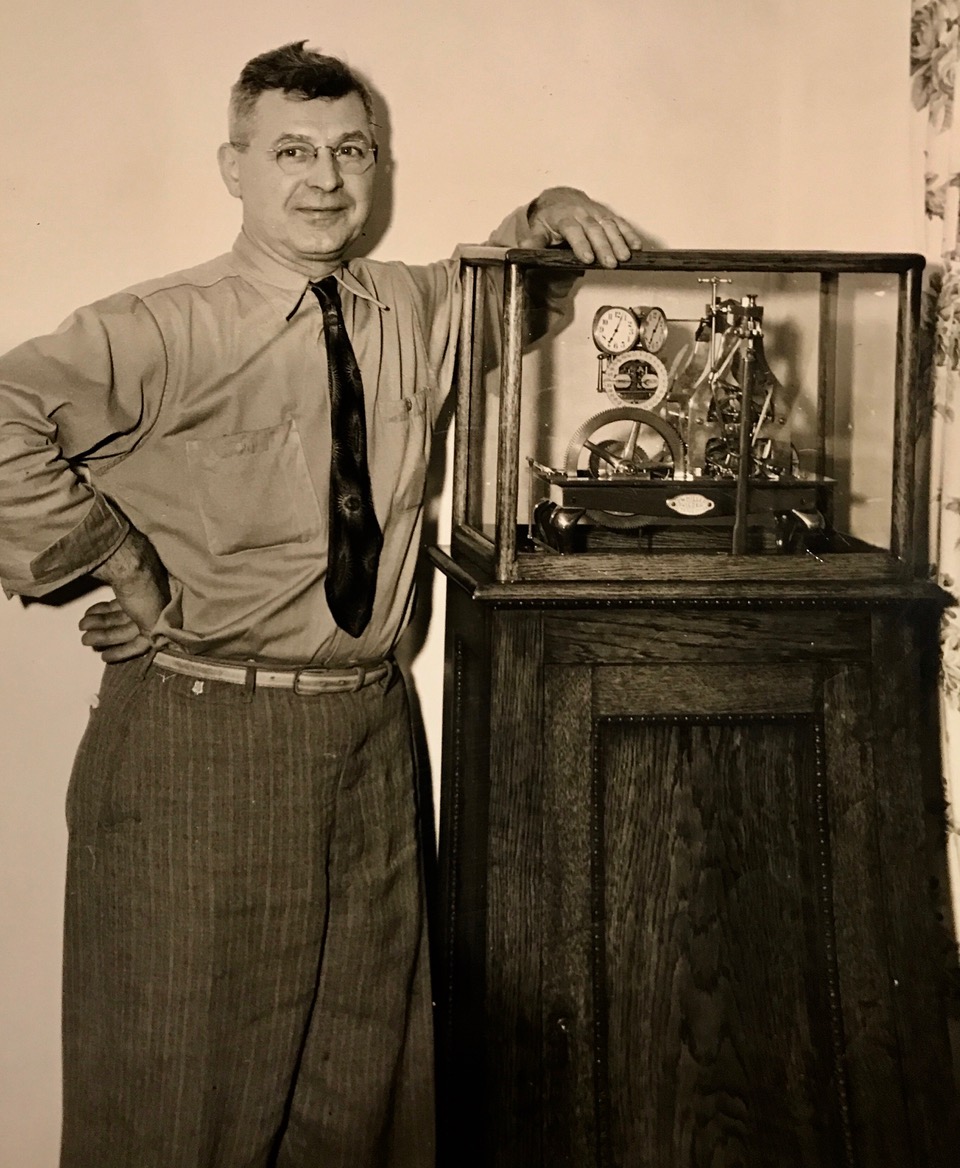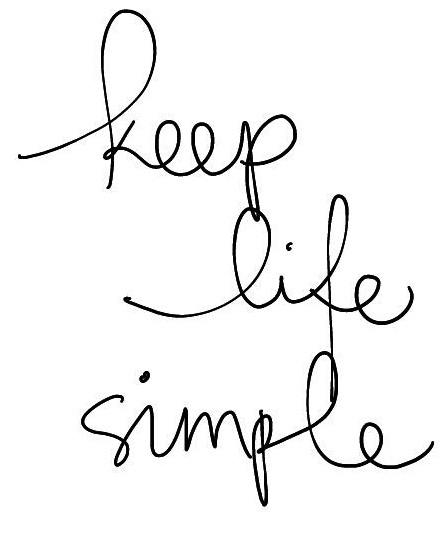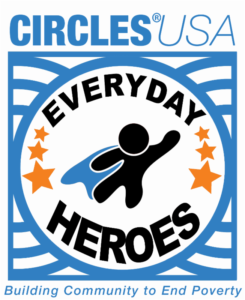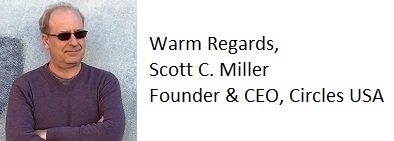
John W. Miller
This past January, my friend Chris and I flew to my brother’s home in Florida to pick up a family heirloom and drive it back to my home in Albuquerque. It is a five-foot model of a clock tower built meticulously by hand by my great-grandfather, John W. Miller, in 1893.
Clock towers typically have four faces so that anyone in the community can see what time it is. It serves everyone equally regardless of who and where they are. Imagine an economy that has the same purpose as a clock tower—to serve everyone regardless of where they are located in a community. Right now, if you are born in poverty, the economy will not serve you at the same level as someone who is born into wealth. This can change. Like a clock tower, the economy is a tool invented by humans to serve human beings. The condition of poverty is an unnecessary characteristic of the US economy. An economy that generates so much poverty as ours is like a clock tower that has only one or two faces rather than all four.
To restore the economy to its original purpose—a tool for all citizens to use in their pursuit of happiness—leaders in each sector of society must embark on a transformational adventure:
The business community, which currently wields the most influence of all sectors, needs to adopt the triple bottom line approach–measuring its success and implementing policy decisions based on the question, “is it good for profit, people, and the planet?” This maturational step is essential for sustaining human life on Earth. No longer can the simple pursuit of a profit be what drives the business community. It’s too dangerous.
The government sector must evolve from its motivation to serve to the lower realms of political and bureaucratic goals to the higher road of service to its citizenry. The primary question is, “are we expanding the capacity of our citizens to thrive?” Politicians must learn to take the high road, follow their conscience and their constituencies, and let the chips fall where they fall. Everyone will be better off for it in the long run.
Philanthropy must invest in innovation. To end poverty, it must invest in creating poverty reduction systems as an alternative to poverty management systems.
Education must understand where the emerging economy is heading and provide students with the tools, skills, and awareness to thrive within the emerging economy, not the economy that is disappearing from us .
Faith organizations must stay out of politics if they are going to compromise their spiritual principles and values for political gains. They must remain focused on raising consciousness, deepening the spirituality of its members, and building loving and caring communities.
Leadership development and support are essential to shift each sector to a higher plane of functioning which is where I am investing the majority of my time and energy going forward.
We must recognize the purpose of the economy is to serve us all, not just some of us. Regardless of which sector you work in, there is a need for your leadership in building alternative systems to replace existing ones. To have four faces of the clock for all citizens to see, we must notice that there are at least two faces missing, and it is our responsibility to put them onto the clock, so everyone has an opportunity to prosper.


 Most Americans spend the first 2/3rds of their life earning enough income to build up an arsenal of stuff, only to spend the last 1/3rd getting rid of it. All that stuff temporarily stays in our homes and then works its way to the overfilled landfills, the rivers, the oceans, or wherever else it goes. Meanwhile, some lucky people don’t do that. Call them the really privileged ones. Because of their global circumstances, culture, family, or simply an early moment of radical clarity, they decide that loving others is what is worth spending their time and talents doing. Gathering stuff is mostly seen as a distraction.
Most Americans spend the first 2/3rds of their life earning enough income to build up an arsenal of stuff, only to spend the last 1/3rd getting rid of it. All that stuff temporarily stays in our homes and then works its way to the overfilled landfills, the rivers, the oceans, or wherever else it goes. Meanwhile, some lucky people don’t do that. Call them the really privileged ones. Because of their global circumstances, culture, family, or simply an early moment of radical clarity, they decide that loving others is what is worth spending their time and talents doing. Gathering stuff is mostly seen as a distraction.
